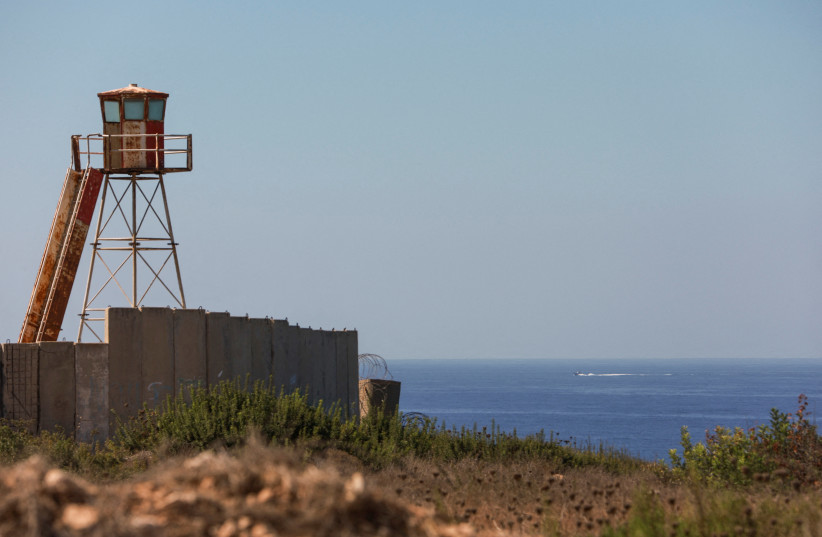Israel has approved a maritime border deal with Lebanon, and it has become overwhelmingly political.
That being said, with so many security chiefs stating that concerns over Israel’s security surrounding the agreement are baseless, and with the rewards that Israel will reap, it is undoubtedly the correct move for Israel to move forward and sign on to the maritime border deal with Lebanon.
Attorney-General Gali Baharav-Miara recommended after it was clear that both Israel and Lebanon were interested in the conditions currently on the table, that the deal is put up for a vote on the Knesset floor. This, by the way, is not legally required, but only a recommendation.
It was decided in the end that it would be presented for discussion in the Knesset, but not for a vote. This, was after the cabinet, approved the agreement on Wednesday.
These approvals are important, but even without them, it is clear that this deal is a good and important one.

Approvals and the opponents of the deal
Such approval would never come anyway since the deal being signed by the Lapid government directly opposes the interests of numerous parties in the opposition – interests that are, simply put, against any sort of diplomatic effort that would make the current coalition emerge victorious.
Prime Minister Yair Lapid pushed back against criticism from the opposition, calling it “poisonous lying propaganda... meant for political means from people who never saw” the agreement.
Many of the opponents of the deal have claimed to be incredulous that Israel could even have any sort of relations with Lebanon. Despite Lebanon not recognizing the State of Israel, the deal – in its sideways manner – creates a clear maritime separation between the two states. That creates the potential for some form of understanding between the two in the future.
Others in the opposition have said the deal would mean Israel handing money straight into the hands of Hezbollah – not unlike, by the way, the transfers of funds to Hamas in the Gaza Strip that happened under the Netanyahu government.
The US, however, is expected to send Israel a letter of guarantee that, in addition to committing to the details of the agreement, will say the US will ensure Lebanon’s income from the reservoir will not reach Hezbollah in accordance with US sanctions.
Mossad chief David Barnea, Shin Bet (Israel Security Agency) Director Ronen Bar and IDF Chief of Staff Lt.-Gen. Aviv Kohavi all expressed support for the deal, stating that the maritime agreement would not strengthen Hezbollah, and beyond that, it would even weaken the terrorist organization.
Hezbollah, according to Bar, sees the agreement as a de-facto recognition of Israel, and so it opposes it unilaterally.
In addition, Israel will receive royalties off the deal – as it is selling its 17% of the Kana Field – while having an on-record agreement with a country – Lebanon – with which it shares a border and has fought wars in the past. On top of that, no funds will be going to the very militia that is constantly threatening Israel’s security from that country.
With the support of Israel’s most advanced security officials, past and present, it is hard to imagine a counter-argument that stands firmly against the maritime border deal.
Defense Minister Benny Gantz, a former IDF chief of staff, said the agreement guarantees Israel’s freedom of action off the coast and that Israel “did not give up one millimeter that is critical to our security.”
National Security Adviser Eyal Hulata explained that Lebanon’s government “has been under the threat of sanctions if any of its income goes to Hezbollah, and therefore has not allowed it to happen for years. This agreement is not different from others that Lebanon has signed; funds will not go to Hezbollah.”
With all of this taken into account, it becomes clear that the opposition to the deal with Lebanon is not one based on policy, but rather rooted purely in politics ahead of the November election. This deal will benefit Israel from an economic, security and diplomatic standpoint.
The arguments against it, simply put, don’t hold up.
